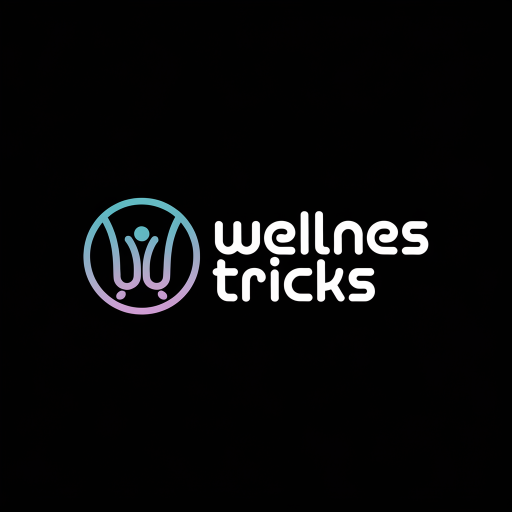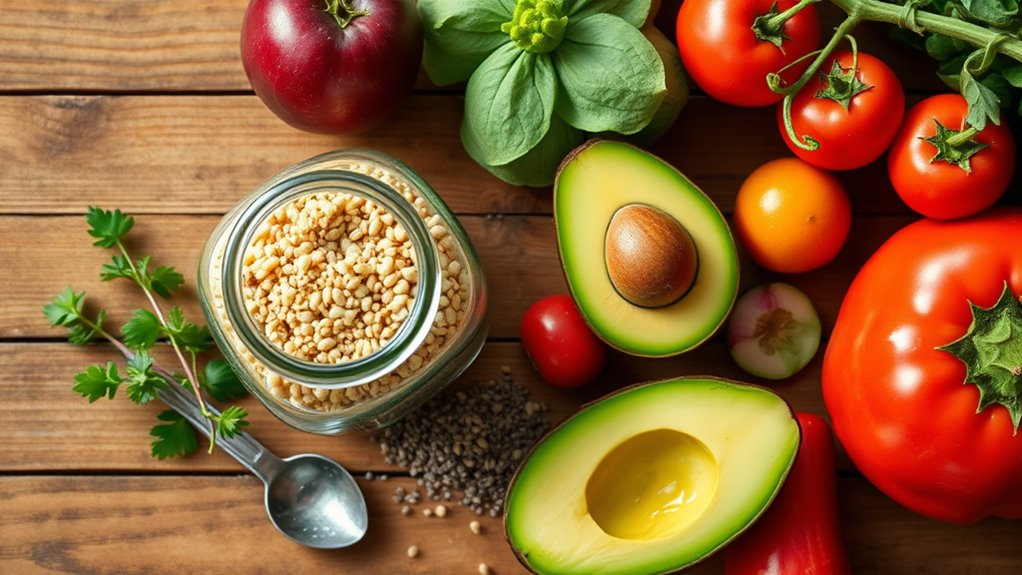Small Nutrition Tweaks That Make a Big Impact
Small nutrition tweaks can transform your health, enhance your energy, and improve your mood. By making simple changes to your daily habits, you can achieve significant benefits without overwhelming yourself. Swapping sugary beverages for water, incorporating whole foods, and practicing portion control are just a few strategies to consider. These adjustments not only support better health but also foster a more mindful relationship with food. Curious about how to implement these changes effectively?
Key Takeaways
- Swap sugary beverages like soda for water to reduce calorie intake and improve hydration.
- Incorporate whole foods like fruits, vegetables, and unprocessed grains to enhance nutritional value and promote fullness.
- Choose healthier snacks, such as air-popped popcorn or Greek yogurt, to satisfy cravings with fewer calories and better nutrition.
- Practice portion control by using smaller plates and focusing on hunger cues to prevent overeating.
- Chew slowly and thoroughly to improve digestion, increase satiety, and enhance meal enjoyment.
Swap Sugary Beverages for Water
Swapping sugary beverages for water is one of the simplest yet most effective changes you can make for your health.
Research shows that cutting out sugary drinks can significantly reduce your calorie intake, helping with weight management.
By replacing just one soda a day with water, you can save around 150 calories, leading to substantial weight loss over time.
Additionally, water hydrates your body without added sugars or sweeteners, improving digestion and energy levels. Drinking lemon water can further enhance these benefits by boosting immunity and aiding digestion.
It’s an easy nutrition change that can lead to better overall health.
Make the switch today; your body will thank you for it!
Incorporate More Whole Foods
Replacing sugary drinks with water is a great first step, but to truly enhance your nutrition, consider incorporating more whole foods into your diet. Whole foods are less processed and packed with essential nutrients. They can improve your health, boost energy, and help maintain a healthy weight. Here’s a quick guide to get you started:
| Food Type | Examples | Benefits |
|---|---|---|
| Fruits | Apples, Berries | High in vitamins and fiber |
| Vegetables | Spinach, Carrots | Rich in antioxidants |
| Grains | Quinoa, Brown Rice | Provide sustained energy |
Incorporating superfoods into your meals can further elevate the nutritional value of your diet. Start small, and you’ll notice a difference!
Choose Healthy Snacks
When it comes to snacking, making smart swaps can significantly impact your nutrition.
Opt for nutrient-dense options like fruits, nuts, or yogurt instead of processed snacks. Additionally, incorporating gut-friendly snacks can drastically improve your digestion and overall gut health. Also, practicing portion control ensures you enjoy your snacks without overindulging, keeping your overall diet balanced.
Smart Snack Swaps
How can you satisfy your snack cravings without derailing your nutrition goals?
Smart snack swaps can help you stay on track while enjoying tasty treats. Here are some ideas:
-
Swap potato chips for air-popped popcorn — it’s lower in calories and full of fiber.
-
Trade sugary granola bars for a piece of fruit with nut butter — you’ll get natural sweetness and healthy fats.
-
Choose Greek yogurt instead of sour cream for dips — it’s creamy, tangy, and packed with protein.
-
Replace ice cream with frozen banana slices blended into a creamy dessert — it’s satisfying and guilt-free.
Small changes make a big difference!
Nutrient-Dense Options
What if you could snack without compromising your health goals? Choosing nutrient-dense options can satisfy your cravings while boosting your nutrition. Instead of reaching for processed snacks, opt for whole foods packed with vitamins and minerals. Here’s a quick comparison:
| Nutrient-Dense Snack | Calories | Key Nutrients |
|---|---|---|
| Greek Yogurt | 100 | Protein, Calcium |
| Almonds | 160 | Healthy Fats, Vitamin E |
| Carrot Sticks | 50 | Fiber, Vitamin A |
These choices help keep you full and energized, making it easier to stay on track with your health goals.
Portion Control Strategies
Ever wondered how to enjoy your favorite snacks without overindulging?
Portion control is key!
Here are some simple strategies to help you choose healthy snacks while keeping your portions in check:
- Pre-portion snacks: Divide them into small bags or containers to avoid mindless munching.
- Use smaller plates: Opt for smaller dishes to trick your brain into feeling satisfied with less.
- Stay mindful: Focus on your food by eating slowly, savoring each bite.
- Choose nutrient-dense options: Select snacks high in fiber and protein to keep you full longer.
These tweaks can make a significant impact on your snacking habits!
Practice Portion Control
When you sit down to eat, have you ever considered how much you’re actually putting on your plate?
Practicing portion control can significantly impact your overall health.
Research shows that controlling serving sizes helps prevent overeating and can lead to weight loss.
Start by using smaller plates or bowls to trick your brain into thinking you’re eating more.
Measure your portions with a scale or measuring cups until you can gauge them by eye.
Pay attention to hunger cues and stop eating when you feel satisfied, not stuffed.
These simple adjustments can foster healthier eating habits and improve your well-being. Additionally, making small changes in your diet can lead to long-term health benefits.
Add More Fruits and Vegetables
Have you thought about how easy it’s to boost your health by simply adding more fruits and vegetables to your diet?
Incorporating these nutrient-rich foods can enhance your well-being in numerous ways. One key takeaway from a clean eating experience is that the impact on health can be significant when you focus on whole foods.
Here are four impactful benefits:
- Improved Digestion: High fiber content helps keep your gut healthy.
- Weight Management: Low in calories, they keep you full longer.
- Stronger Immunity: Packed with vitamins and antioxidants, they help fight illness.
- Increased Energy: Natural sugars provide sustained energy without crashes.
Start small—swap snacks for fruit or add veggies to meals. Your body will thank you!
Limit Processed Foods
What if you could significantly improve your health by simply limiting processed foods?
By cutting back on items like sugary snacks, fast food, and pre-packaged meals, you’ll reduce your intake of unhealthy fats, added sugars, and sodium.
Research shows that a diet rich in whole foods supports better heart health, weight management, and overall well-being. Additionally, ditching junk food can lead to improved digestion and increased energy levels.
Focus on whole grains, lean proteins, and fresh produce instead.
Cooking at home not only enhances nutrition but also allows you to control ingredients.
Making this small tweak can lead to lasting benefits, helping you feel more energetic and vibrant every day.
Stay Mindful While Eating
Staying mindful while eating can transform your relationship with food and enhance your overall health.
By eliminating distractions, chewing slowly, and focusing on food quality, you’ll not only enjoy your meals more but also improve digestion and satisfaction.
Implementing these simple changes helps you develop a more intentional eating habit.
Eliminate Distractions While Eating
How often do you find yourself eating while distracted by screens or multitasking?
It’s time to eliminate those distractions and truly enjoy your meals.
Mindful eating can enhance your enjoyment and digestion.
Here are some tips to stay focused:
- Turn off devices: Silence your phone and switch off the TV to avoid interruptions.
- Set a dedicated eating space: Create a comfortable spot solely for meals.
- Chew your food: Focus on the flavors and textures.
- Engage with your meal: Appreciate the colors, aromas, and presentation.
Chew Slowly and Thoroughly
Have you ever noticed how quickly you finish your meals when you’re not paying attention?
Chewing slowly and thoroughly can transform your eating experience. Research shows that slower eating leads to greater satiety, helping you consume fewer calories overall.
By taking the time to chew your food, you allow digestive enzymes to break down nutrients more effectively, improving absorption.
Additionally, savoring each bite encourages mindfulness, enhancing your enjoyment of the meal.
Aim for at least 20 chews per bite, and notice how much more satisfying your meals become.
This simple tweak can make a significant impact on your overall nutrition and well-being.
Focus on Food Quality
Enjoying your meals mindfully goes hand in hand with focusing on food quality.
When you prioritize the ingredients on your plate, you not only nourish your body but also enhance your dining experience.
Here are four simple ways to elevate your food quality:
- Choose whole foods: Opt for fruits, vegetables, and grains that are unprocessed.
- Incorporate healthy fats: Include avocados, nuts, and olive oil for heart health.
- Select organic when possible: Reduce exposure to pesticides and chemicals.
- Mind the seasonality: Fresh, seasonal produce is often more nutritious and flavorful.
Make these tweaks, and you’ll feel the difference!

